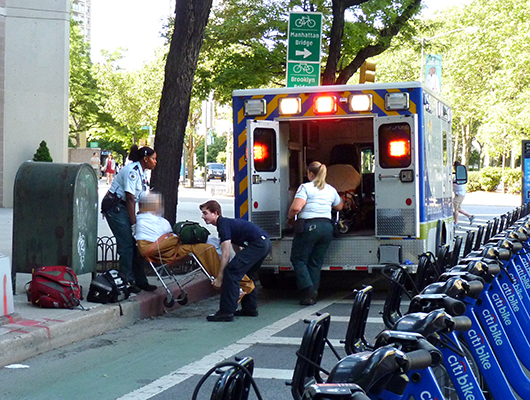As LICH lawsuits fly, Brooklyn patients must travel farther
Worries, when minutes make a difference

It was a scene that has played out numerous times since Long Island College Hospital (LICH) was placed on ambulance diversion.
A man collapsed, unconscious, in his apartment in Brooklyn Heights. His girlfriend called 9-1-1. An ambulance from Brooklyn Hospital Center (BHC) arrived and EMTs assessed the patient, who was unresponsive. Eventually, he was wheeled downstairs, and EMTs gave the girlfriend a choice: Bring him to BHC, or New York Methodist?
Neighbor and friend Susan Raboy advised the girlfriend, “Go to Methodist.” The man was rushed there where, all agree, he received excellent treatment. But after all-night surgery, his outcome is still in doubt.

Brooklyn Heights
View MoreRead the Brooklyn Height's Press and Cobble Hill News. Find out more about Brooklyn Height's History here.